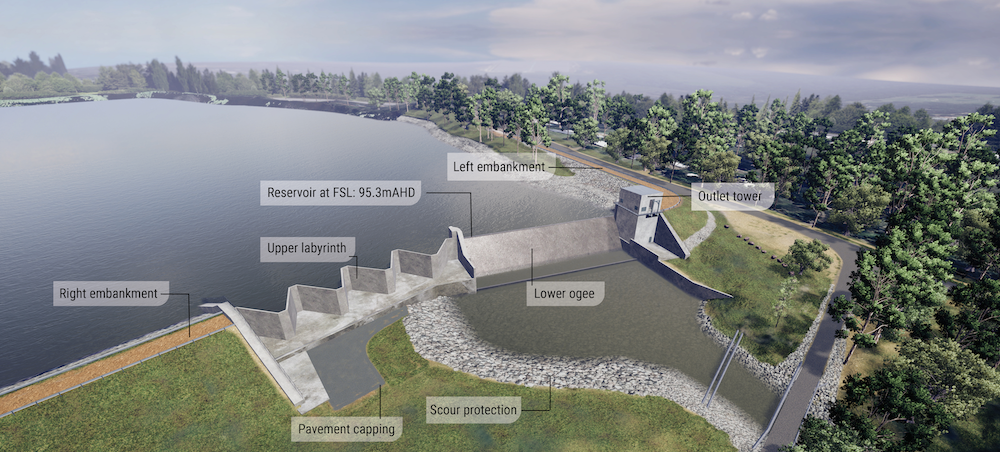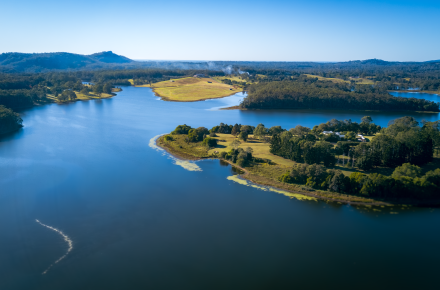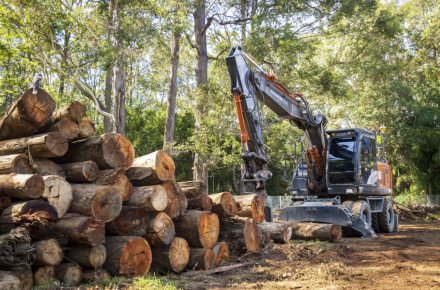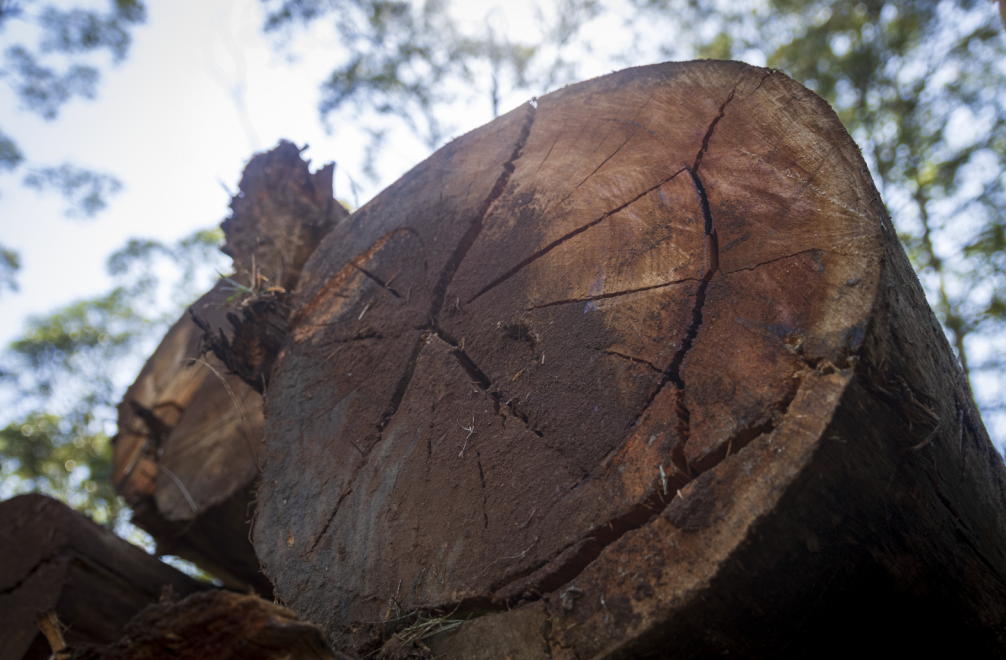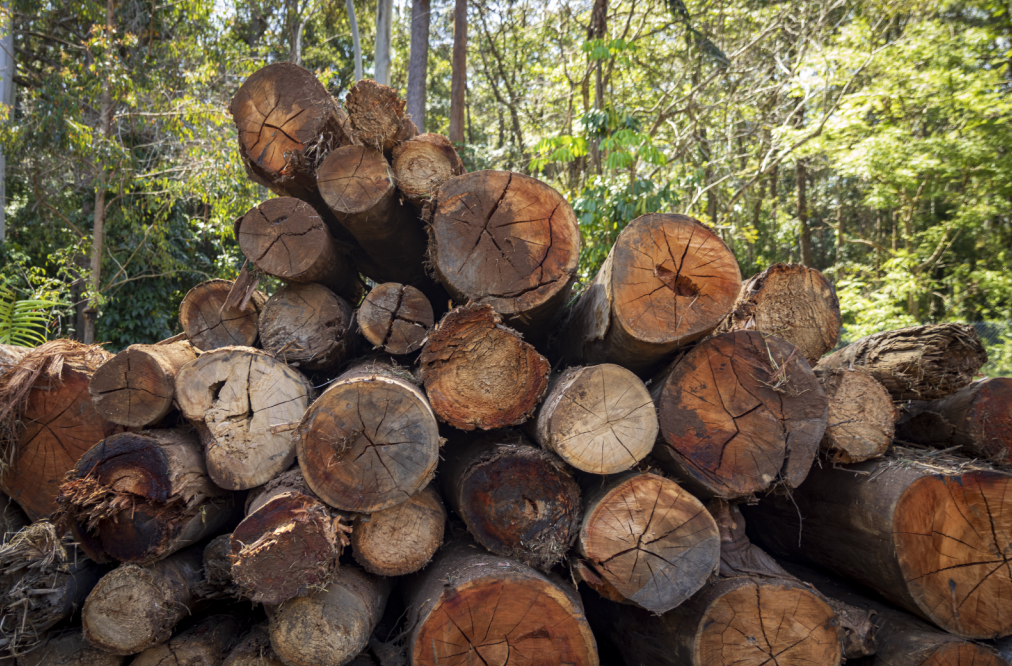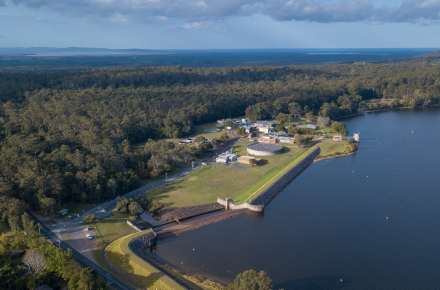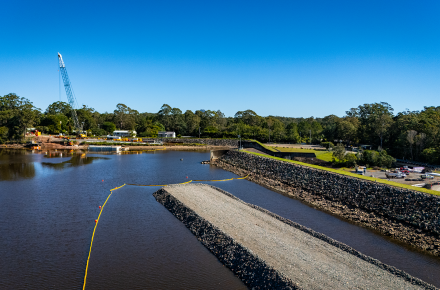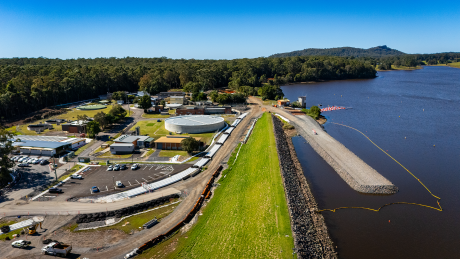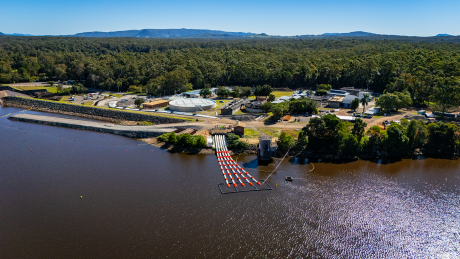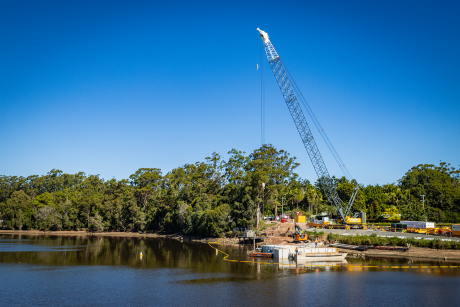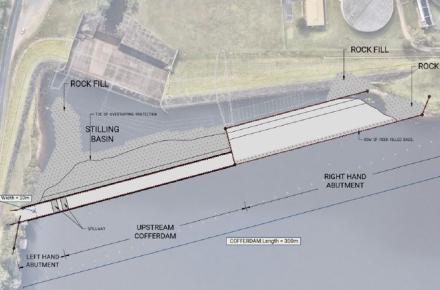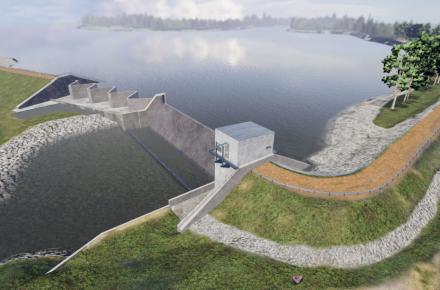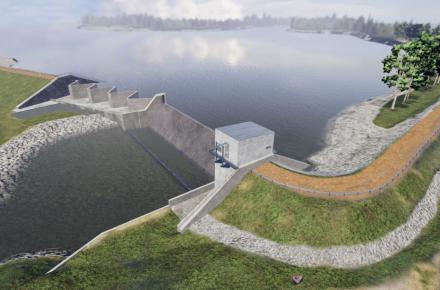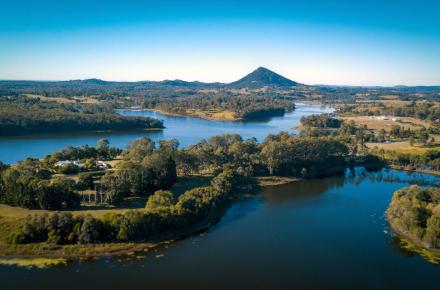The Lake Macdonald Dam Improvement Project includes construction of a temporary cofferdam, a new concrete spillway, an upper labyrinth, and the reconstruction of the existing earth embankments to enhance the dam’s ability to withstand extreme weather events.
Seqwater Executive General Manager Infrastructure Planning and Capital Delivery, Sarah Dixon, said while Lake Macdonald Dam continues to operate safely under normal conditions, Seqwater is committed to investing in the longevity of the important local water source.
“Lake Macdonald Dam was built in 1965 to the safety standards of its time, but the methods used to estimate extreme weather and flood risks have changed significantly since the dam was originally built,” she said.
“Seqwater is proud to mark a major milestone in starting construction on the Lake Macdonald Dam Improvement Project together with our head contractor John Holland. The dam upgrade will continue to ensure long-term water supply reliability for the Sunshine Coast region,” said Dixon.
The large siphon system has been switched on and is partially lowering the lake to allow the works to be undertaken safely. Works have also commenced on the temporary upstream cofferdam, with a 250-tonne crane onsite.
More than 1,500 tonnes of sheet piles are being delivered to form the structure of the cofferdam, and more than 3,000 rock bags - each weighing approximately 8 tonnes - are being placed downstream of the cofferdam to provide additional structural support.
In addition, more than 80,000 tonnes of rockfill is being delivered to build the cofferdam.
This will be the first major upgrade of Lake Macdonald Dam since its raise in 1980. Importantly, more than 150 jobs are expected to be supported over the life of the project.
Standard work hours are Monday to Friday, from 6:30am to 6:30pm, and Saturday from 6:30am to 4:00pm. Extended work hours will be required for some construction activities, including spillway demolition.
During construction, there will be an increase in traffic around Lake Macdonald. Temporary traffic changes will occur, and traffic controllers and temporary signage will be in place when required.
Recreation activities on Lake Macdonald via Lake Macdonald Park and the Noosa Botanic Gardens will remain open, however some recreational use of the lake and surrounding areas will be temporarily closed for safety due to proximity to the construction area.
Seqwater extends its thanks to the community for their ongoing patience and support during this essential dam safety and water security upgrade and is committed to providing regular updates to keep residents informed as work progresses.
The Lake Macdonald Dam Improvement Project is expected to take about five years to complete, weather and site conditions permitting.
To connect with a member of the Seqwater project team, email [email protected] or call 07 3432 7000 (during business hours).
To stay up to date, visit the Seqwater website.
Further Information:
Through its Dam Improvement Program, Seqwater is investing in South East Queensland’s dams to ensure they provide water security for years to come.
Since 2008, Seqwater has delivered 13 upgrades, including Leslie Harrison Dam at Capalaba, Sideling Creek Dam north of Brisbane and Ewen Maddock Dam on the Sunshine Coast.

